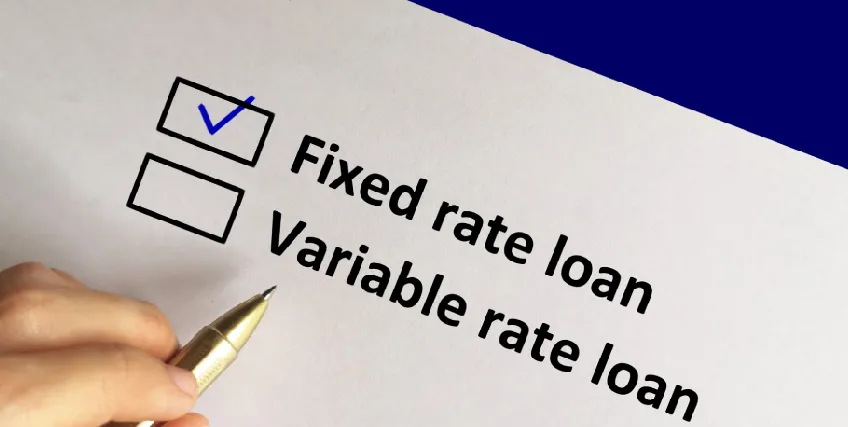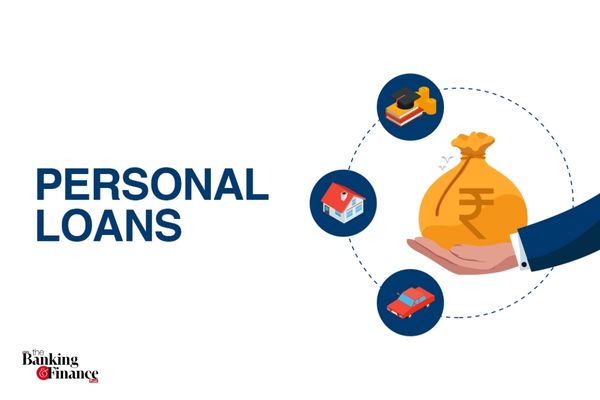Homeowners are increasingly turning to home equity loans as a way to unlock the financial potential of their property, but finding the right lender and understanding the complexities of loan terms can be a challenge. A TD Bank home equity loan offers a fixed-rate solution for predictable payments, providing a sense of financial stability. However, the lender’s limited geographic reach and mixed customer reviews require careful consideration before committing.
Toc
- 1. Exploring the Advantages of a TD Bank Home Equity Loan
- 2. The Application Process: Step-by-Step Guide
- 3. Benefits of a Fixed-Rate Home Equity Loan
- 4. Related articles 01:
- 5. Comparing Alternatives: Is TD Bank Right for You?
- 6. Strategies for Maximizing Your TD Bank Home Equity Loan
- 7. Frequently Asked Questions
- 8. Related articles 02:
- 9. Conclusion
Exploring the Advantages of a TD Bank Home Equity Loan

TD Bank’s home equity loan stands out for its fixed interest rate, a feature that provides homeowners with the security of consistent monthly payments. By locking in a rate, you can enjoy the peace of mind of knowing your costs won’t fluctuate, even if market rates rise. This predictability is crucial for budgeting, especially for long-term projects like home renovations or financing college education. For example, if you’re planning a major kitchen remodel, a fixed-rate home equity loan ensures that your monthly payments will be consistent, allowing you to accurately estimate your project costs and manage your overall budget.
What is a Home Equity Loan?
A home equity loan allows homeowners to borrow against the equity they’ve built up in their property. This type of loan is secured by the home itself, meaning that if you default on the loan, the lender has the right to foreclose on your home. Home equity loans typically come with a fixed interest rate, which means your monthly payments will remain the same throughout the loan term. This is in contrast to a home equity line of credit (HELOC), which often has a variable interest rate and allows borrowers to draw funds as needed.
Key Features of TD Bank’s Home Equity Loan
With a TD Bank home equity loan, you can borrow a minimum of $10,000, with repayment terms ranging from 5 to 30 years. The lender offers a maximum combined loan-to-value (CLTV) ratio of up to 89.9%, depending on your creditworthiness and the property details. Additionally, TD Bank provides a 0.25% rate discount for customers with an active personal checking account, making it an attractive option for existing TD Bank customers.
The Application Process: Step-by-Step Guide

Navigating the application process for a TD Bank home equity loan can seem daunting, but breaking it down into manageable steps can simplify the experience. Here’s a detailed look at how to apply:
Step 1: Gather Necessary Documentation
Before you start your application, it’s essential to gather all required documentation. This typically includes:
- Personal identification (e.g., driver’s license or passport)
- Proof of income (e.g., pay stubs, W-2 forms, or tax returns)
- Information about your property (e.g., current mortgage statement, property tax assessments)
- Homeowners insurance policy details
Step 2: Begin the Application Online
You can initiate the application process online through TD Bank’s website. During this stage, you’ll provide personal information and details about your property. The online application is designed to be user-friendly, guiding you through each step.
Step 3: Visit a Local Branch for Closing
Once your application has been submitted online, you’ll need to visit a local TD Bank branch to finalize the process. This step is crucial as it involves signing the necessary paperwork and discussing the terms of your loan with a representative.
Step 4: Home Appraisal
TD Bank may require a home appraisal to determine the current market value of your property. This appraisal helps establish how much equity you can borrow against. Typically, the lender arranges and covers the cost of the appraisal, although for loans exceeding $500,000, you might be responsible for some closing costs.
Step 5: Loan Approval Process
The approval process involves a hard credit check, which can temporarily impact your credit score. Once approved, you can expect to receive the funds within a reasonable timeframe, although the exact timeline may vary based on individual circumstances.
Benefits of a Fixed-Rate Home Equity Loan

Stability and Predictability
One of the primary advantages of a fixed-rate home equity loan is the stability it provides. With a fixed interest rate, your monthly payments will remain consistent, regardless of market fluctuations. This predictability is crucial for budgeting, especially for long-term projects like home renovations or financing college education. For example, if you’re planning a major kitchen remodel, a fixed-rate home equity loan ensures that your monthly payments will be consistent, allowing you to accurately estimate your project costs and manage your overall budget.
1. https://thegioiloaica.com/archive/9455/
2. https://thegioiloaica.com/archive/9453/
Easier Financial Planning
The consistent monthly payment structure provides a solid foundation for budgeting, allowing homeowners to confidently plan for their financial aspirations, whether it’s a dream kitchen remodel or funding their children’s college education.
Potential Long-Term Savings
In a rising interest rate environment, as of November 2023, a fixed-rate home equity loan can offer significant long-term savings compared to variable-rate options. By locking in a fixed rate, you are shielded from the risk of increasing interest charges, which can significantly impact the total cost of your loan. For instance, if interest rates rise by 2% over the life of a 15-year loan, a homeowner with a fixed rate could potentially save thousands of dollars in interest payments compared to someone with a variable rate that adjusts with the market.
Access to Larger Amounts
TD Bank’s home equity loan allows you to borrow a minimum of $10,000, which can provide substantial funding for larger projects or expenses. This can be particularly useful for homeowners looking to undertake significant renovations or consolidate high-interest debt.
Comparing Alternatives: Is TD Bank Right for You?

While TD Bank’s fixed-rate home equity loan offers numerous benefits, it’s important to consider other options available in the market. Major banks like Bank of America and Wells Fargo also provide home equity financing products, each with unique features.
Alternative Lenders
In addition to traditional banks, online lenders have emerged as a competitive and increasingly popular option for home equity financing. Platforms like Rocket Mortgage and LightStream not only provide streamlined application processes but also leverage technology to enhance user experience. These lenders often come with lower fees and more flexible terms, making them appealing for homeowners looking to tap into their equity. Many online lenders provide competitive interest rates, which can significantly impact the overall cost of borrowing. Furthermore, the convenience of managing your loan entirely online—ranging from application to payment—adds to the attractiveness of these options, especially for those with busy lifestyles.
Factors to Consider
When comparing TD Bank’s home equity loan to other options, it’s crucial to pay close attention to several key factors that can influence your decision:
- Interest Rates: Compare the fixed rates offered by various lenders. A slightly lower rate can save you a considerable amount over the life of the loan, so don’t hesitate to shop around.
- Fees: Examine all potential costs, including origination fees, closing costs, and any additional charges that could affect your overall budget. Understanding the fee structure will help you avoid unexpected expenses.
- Repayment Terms: Look at the flexibility of repayment terms and whether they align with your financial goals. Consider how the length of the loan and the size of monthly payments fit into your overall financial plan.
- Customer Service: Research customer reviews and ratings to gauge the quality of service you can expect. Responsive and helpful customer support can make a significant difference in your borrowing experience, particularly if issues arise during the loan process.
Strategies for Maximizing Your TD Bank Home Equity Loan

To get the most out of your TD Bank home equity loan, consider implementing the following strategies:
1- Timing Your Application
As interest rates are on the rise, it’s crucial to act promptly to secure a favorable fixed rate on a home equity loan. The Federal Reserve has raised interest rates several times this year, which has directly impacted the cost of borrowing across various financial products, including mortgages, personal loans, and credit cards. This trend of increasing rates is likely to continue in the near future, making it advantageous to lock in a fixed rate sooner rather than later to protect yourself from further increases that could significantly raise your borrowing costs.
2- Aligning Loan Terms with Financial Goals
When considering a home equity loan, it’s important to evaluate your repayment timeline thoroughly and select a loan term that aligns with your financial objectives. Shorter loan terms often come with lower interest rates, which can save you money in the long run, but they may also lead to higher monthly payments. Conversely, longer loan terms can provide more manageable monthly payments but may result in paying more interest over the life of the loan. It’s essential to consider your current financial situation and future cash flow to determine which option best suits your needs.
3- Rate Lock Opportunities
If you have a home equity line of credit (HELOC) with TD Bank, you can take advantage of the ability to lock in a fixed rate on all or a portion of your balance during the draw period. This feature can be particularly advantageous if you anticipate needing to access your equity gradually. By locking in a rate, you can protect yourself against rising interest rates while still having the flexibility to withdraw funds as necessary. Be sure to inquire about any associated fees or conditions that may apply to this rate lock feature.
4- Understanding the Impact on Your Credit
It’s important to be aware that applying for a home equity loan involves a hard credit check, which can temporarily lower your credit score. This dip in your score may affect your ability to secure other forms of credit during that time. To minimize this impact, consider timing your application strategically, such as when you have fewer other credit inquiries or when you are in a strong financial position. Regularly monitoring your credit score can also help you understand how your actions impact your overall creditworthiness and enable you to take proactive steps to maintain a healthy score.
Frequently Asked Questions

Q1: What is the minimum credit score required for a TD Bank home equity loan?
1. https://thegioiloaica.com/archive/9453/
2. https://thegioiloaica.com/archive/9455/
While TD Bank does not publicly disclose its minimum credit score requirement, having a good credit score is generally recommended for favorable loan terms.
Q2: How long does it take to receive funds after a TD Bank home equity loan is approved?
The funding timeline can vary, but it typically takes a few weeks after the loan is approved to receive your funds.
Q3: What are the potential fees associated with a TD Bank home equity loan?
TD Bank charges a $99 origination fee, and additional closing costs may apply, especially for loans exceeding $500,000.
Q4: Are there any other fees or charges associated with a TD Bank home equity loan?
Yes, there may be additional fees such as appraisal fees, title insurance, and recording fees that you should factor into your overall borrowing costs.
Q5: What are the repayment terms for a TD Bank home equity loan?
The repayment terms can range from 5 to 30 years, depending on the loan amount and the borrower’s financial situation.
Conclusion
TD Bank’s fixed-rate home equity loan can provide homeowners with the financial stability and predictability they seek when tapping into their property’s equity. By locking in a consistent interest rate, you can enjoy the peace of mind of consistent monthly payments, which can be invaluable when planning for long-term financial goals.
However, it’s essential to carefully consider your individual circumstances, compare offers from multiple lenders, and evaluate the terms and fees associated with any home equity loan before making a decision. By taking the time to explore your options, you can unlock the power of your home’s equity and take control of your financial future.
Whether you choose TD Bank or explore alternative lenders, prioritizing your financial needs and goals will help you make an informed decision that aligns with your long-term well-being. With careful planning and a thorough understanding of the available options, you can unlock the full potential of your home’s equity and achieve your financial objectives.















